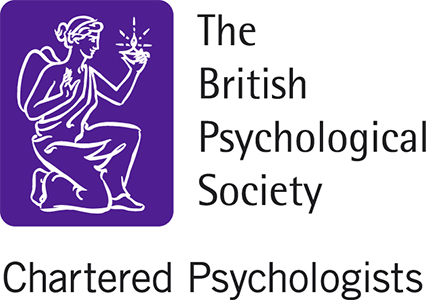Problems we help with
We can help you with your difficulties
People come to us for help with a wide range of difficulties, single to multiple issues, from mild to complex. (See some examples in the list below.)
Assessment by a Clinical Psychologist
All of our Clinical Psychologists will work with you during the first few appointments (the getting-to-know-you assessment process) to understand the difficulties, how the problems came about and how best to start tackling them.
We are all different.
Therapy Tailored to You
Each psychologist will tailor what they offer to suit you individually, offering you bespoke input.
How Long Do I Need to See A Clinical Psychologist For?
You can also agree on how long you want to meet for; whether that be 1, 2 appointments or more. It is common after the assessment stage, for people to agree on a block of appointments followed by reviewing this together.
You can see if the sessions are going how they should be, if they are helping you get nearer to the goals you want and discuss together how you are able to work with your psychologist.
Some Example Problems Our Psychologists Help With
You might have a feeling that “something is not quite right” or know that you are suffering with one or more problems from the example list below.
Some common themes behind some people’s struggles with these difficulties are noted.
Click for more information about each difficulty. (This list is not exhaustive.)
- Adjusting to life changes (relationship break ups, pregnancy, parenthood, health changes, etc.)
- Anger issues
- Anxiety and worry
- Attachment difficulties
- Bereavement
- Depression / low mood
- Difficulties with managing your emotions
- Eating related difficulties
- Issues relating to early life experiences
- Mood disorders
- Motivational difficulties
- OCD (unwanted thoughts or urges)
- Panic
- Personality difficulties
- Phobias
- Physical health difficulties (including adjustment, chronic pain & medically unexplained symptoms)
- Psychosis
- PTSD
- Relationship difficulties
- Self-esteem / Self-confidence
- Sexuality
- Stress
- Substance use issues (e.g., alcohol)
- Trauma (including Complex Trauma)
- Work related stress, burnout & career issues
- Living with ADHD, Autism (ASC). Please note we do NOT diagnose here, therapy/intervention only offered (see our neurodiversity page).
Rather than be concerned about which “label”, or diagnosis fits your problems, let us help you work out how your problems are stopping you get what you want out of your life.
We need to overcome the psychological barriers in your way.
Our Clinical Psychologists are on the About Us page click here
We offer therapy to help you change things in the direction you want, in a supportive way, that’s manageable for you and your circumstances.
Clinical Psychologists Trained in Many Therapies
All Clinical Psychologists are trained in a wide range of talking therapies and then go on to specialise with even deeper training in certain approaches.
When you contact us, we can help you decide your next step.
Please also see pages on the following topics :
- What is Clinical Psychology?
- What training have Clinical Psychologists had?
- What are the main Psychological Therapy approaches used?
- How do I make an appointment for help?
- What usually happens at the first meeting? and how long do we meet for?
- Will I be given information about the Clinical Psychologist I see?
- What courses can I join (to help me improve my psychological health)?
- How will my confidentiality be maintained?
- What have other people said about seeing a Clinical Psychologist here?
- Where else can I seek help and information? Links to other organisations given here
- Regulations and making a complaint
What is Clinical Psychology?
Psychology is the scientific study of the human mind and behaviour.
Principles and theories from Psychology are applied to help people, couples, families, groups and organisations. Clinical Psychologists usually have 7-8 years of training.
Clinical Psychologists are trained in the breadth and depth of a range of psychological assessments, interventions and therapies. Thus, a tailored approach can often be offered to individuals including integrative therapies (combining two or more in a theoretically coherent practical way).
There are a range of psychological therapies available to choose from, to suit each situation and person. Research evidence shows that many psychological therapies help people overcome many difficulties, either completely or partially.
Clinical Psychologists have both a Psychology degree (usually 3 years) plus the doctoral degree in Clinical Psychology (usually 3 years).
Frequently, in order to obtain a place on the Clinical Psychology training course, some experience is also needed, such as assistant psychologist, IAPT worker (Improving Access to Psychological Therapies), nursing assistant, researcher, etc.
Thus, in all, Clinical Psychologists have usually 7-8 years of training. Many Clinical Psychologists go on subsequently to receive specialist training in particular approaches too.

Author
Dr Jurai Darongkamas
Jurai is a Consultant Clinical Psychologist who worked in Mental Health in the National Health Service (NHS), 1986 – 2019.
She now works part time alongside select colleagues offering high quality Psychological Therapies privately.
She is an Associate Fellow of the British Psychological Society (AFBPsS), an experienced trainer and supervisor; previously Lead in an NHS Trust for people with complex difficulties and Board Trustee.
Links to help and information
If you need to talk to someone urgently, click here for contact details of other organisations for your information.





